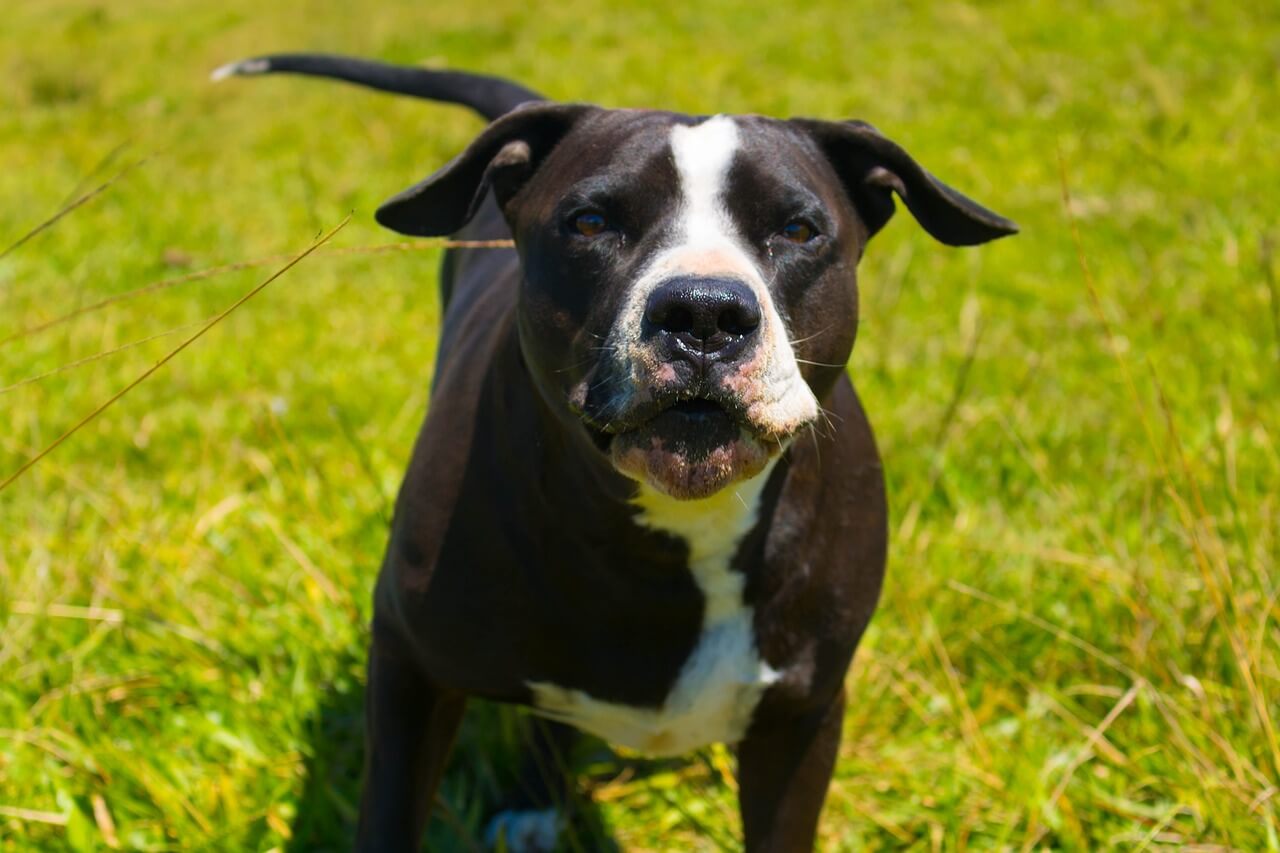21 Animal Protection Groups Issue Letters of Support for Proposed Ban on Foreign Pit Bull–Like Breeds Amid Rise in Illegal Dogfights and Attacks
In a joint letter and several independent letters, 21 animal protection groups have written in support of the central government’s proposal to prohibit pit bulls and similar foreign dog breeds who are commonly used for illegal fighting. Along with PETA India, the Federation of Indian Animal Protection Organisations, Samayu, Fauna Police, Centre for Research on Animal Rights, Heritage Animal Task Force, Sansthanam Abhay Daanam, People for Cattle in India, Sheetal Chhaya Trust, Badlo Re, Aushadh Daanam, Gyan Daanam Gurukul, Holy Cow Foundation, CAPE Foundation, Compassionate Living, Animal Welfare Trust Ekamra, Sacred Earth Trust, Compassion for Animals Welfare Association, Umeed for Animals Foundation, Earthlings Trust, and Compassion Unlimited Plus Action supported the efforts.
On 2 May, the Ministry of Fisheries, Animal Husbandry and Dairying invited public comments on its circular originally released on 12 March to the chief secretaries of all states and union territories prohibiting some 23 foreign breeds who are commonly used in dogfights and kept on heavy chains or in cages. Such dogs have been increasingly involved in severe and often fatal attacks on humans. The proposed policy covers pit bulls as well as dog breeds not common in India and includes other preventive measures.
Pit bulls and similar foreign dog breeds are primarily used for illegal dogfighting in India, even though inciting dogs to fight is illegal under The Prevention of Cruelty to Animals Act, 1960. Without suitable enforcement and regulation, organised dogfights have become prevalent in parts of the country, making pit bull–type dogs and others used in these fights the most abused dog breeds. Pit bulls and related breeds are also otherwise typically kept on heavy chains as attack dogs, resulting in aggressive, defensive behaviour and a lifetime of suffering. Many endure painful physical mutilations such as ear-cropping and tail-docking – illegal procedures that involve removing part of a dog’s ears or their tail to prevent another dog from grabbing them during a fight. These dogs are encouraged to continue fighting until they become exhausted and at least one is seriously injured or dies. Because dogfighting is illegal, injured dogs are not taken to veterinarians.
There are 70 million dogs and cats suffering on India’s streets or in severely crowded animal shelters – and pit bulls and related breeds are the most commonly abandoned dog breeds in India. Breeders do not warn unsuspecting buyers that this breed was developed in the UK through the selective breeding of dogs to accentuate characteristics desirable for use in dogfights and attacks, resulting in aggression, abnormally strong jaws, and muscular strength. Although dogfighting was banned in the UK in 1835 and pit bulls and similar breeds are now prohibited there and in numerous other countries, their exploitation is still causing chaos in India.
From 2005 to 2019, pit bulls in the US contributed to 66% of deaths from dogs (346 fatalities). Combined, pit bulls and Rottweilers contributed to 76% of the total recorded deaths there. Severe and fatal attacks by pit bulls and related breeds are increasingly common in India. In May, a 45-year-old Prantiya Rakshak Dal jawan was critically injured by a pit bull in Baraut and a 5-year-old girl sustained serious injuries when she was attacked by two Rottweilers in Chennai. In April, a 15-year-old boy was critically mauled by a neighbour’s pit bull in Ghaziabad until he was saved by community dogs. In March, a 10-year-old girl sustained serious injuries when she was attacked by a pit bull while she was playing in Ghaziabad. In Delhi, a 7-year-old boy was injured by a pit bull in February and a 1-year-old girl was hospitalised for 17 days after she was attacked by a pit bull in January. In a famous case, a gym owner’s pit bull killed his mother in Lucknow.
PETA India warns that most breeders and pet shops in the country are illegal, as they aren’t registered with the relevant state animal welfare board. Information received by the group under the Right to Information Act, 2005, revealed that only 236 breeders and 488 pet shops were registered in 21 states and that there were no registered breeders or pet shops in 10 states, in violation of The Prevention of Cruelty to Animals (Dog Breeding and Marketing) Rules, 2017, and The Prevention of Cruelty to Animals (Pet Shop) Rules, 2018.







